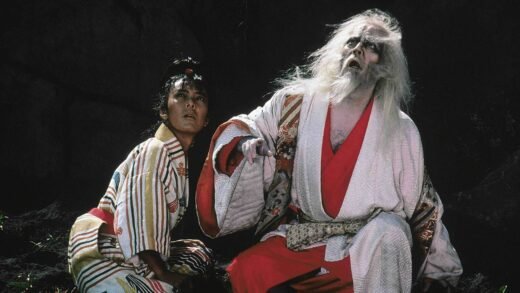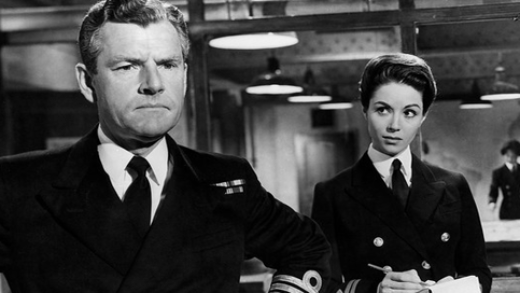Directed and written by Paul Thomas Anderson.
Starring Joaquin Phoenix, Philip Seymour Hoffman, Amy Adams, and Laura Dern.
Premiered at the Venice International Film Festival on September 1, 2012, where it won the Silver Lion for Best Director and the Volpi Cup for Best Actor (Phoenix and Hoffman); released in the United States on September 14, 2012.
Viewed on September 21, 2025 in 70mm at the Bryn Mawr Film Institiute in Bryn Mawr, Pennsylvania.
The theoretical high road: Reality? What’s that?
Questions about whether an event in a movie was real or imagined seem so tawdry, so intellectually vacuous, that it’s embarrassing to admit that this is precisely the question that I feel like needs an answer after viewing Paul Thomas Anderson’s The Master (2012) in 70mm at the Bryn Mawr Film Institute, on this 21st day of September on this 2025th year of our Lord and Savior Jesus Christ.
Such questions embarrass because they seem to ignore the fact that the text/film is as it is, it is what it is! Deal with the text you have, to quote a certain neo-con asshole, not the one you want.*

Are fantasy and reality distinguished in this film?
But in The Master questions of reality and otherwise are actually quite pertinent, both to the subject matter as well as to the film itself. Several times characters refer to events that did not actually take place within the film’s narrative. By itself there is nothing surprising about this. Yet a central character’s psychological health is frequently in question.
The Master, although presumably titled after Lancaster Dodd (Philip Seymour Hoffman), an L. Ron Hubbard-esque character, follows the adventures of Freddy Quell (Joaquin Phoenix), largely as they intersect with the former. And of Quell we must more than once ask if this very dubious protagonist is experiencing a drunken hallucination, a memory from days bygone, or reality firsthand.
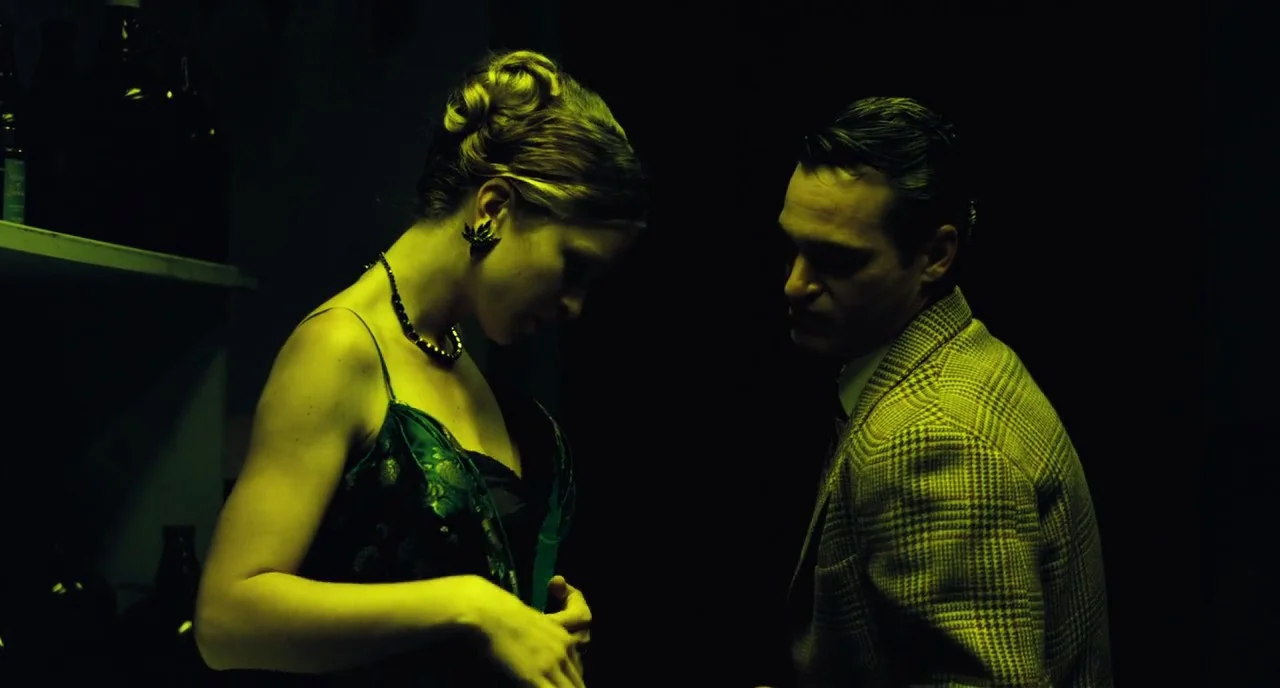
Where are the naked white women?!
The scene that seems to require explanation occurs about midway through the film when our characters are invited to the Philadelphia home of Helen Sullivan (Laura Dern). That evening Dodd entertains his hangers-on by singing a sort of drinking song, “Go No More A Roving With You Fair Maid.” Quell is asleep, it appears, at the beginning of the scene, but wakes up as Dodd is in the middle of a verse.
And it appears that, when he blinks his eyes, all of the women in the room are now in a state of undress, including Dodd’s wife and even older women on the periphery whose participation might surprise.
As I watched, I kept expecting these women to return to a habillée state, in a kind of blink that would confirm this momentary nudity is the fantasy of Quell. And as the scene unfolds, one person who looks directly at Quell is Peggy Dodd (Amy Adams), Lancaster’s wife. But no such return occurs.
Why this fantasy could be Quell’s
Recall that Quell’s character is introduced in scenes where he intentionally mounts a naked sandwoman and during a psychiatrist’s Rorschach interview can see only a “cunt,” a “cock entering a cunt,” and “penis from above.”
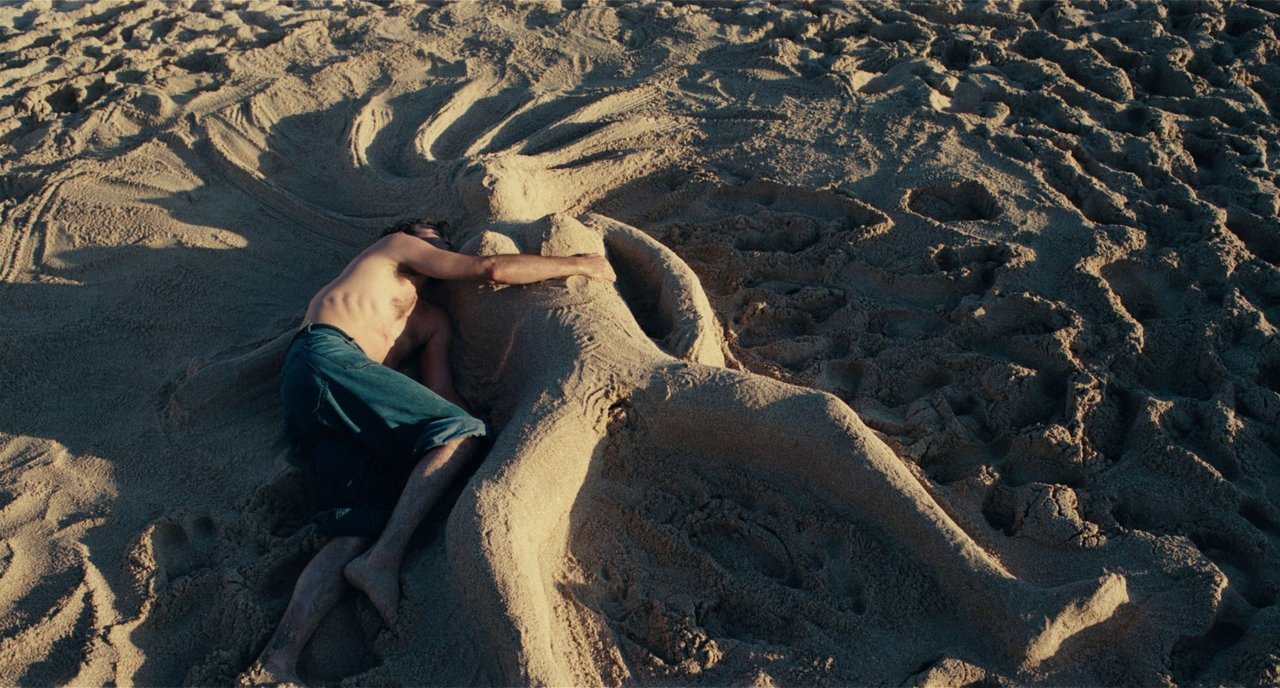
In the “Go No More …” scene, it would be very consistent for Quell to be imagining all of these women undressed.
That scene is conclued with Dodd preparing for bed and visited by Peggy, who tells her that she doesn’t mind what he does as long it is never with anyone that she knows and that Quell is a drunk who is bringing him down. She then gives him a handjob.
What draws Dodd to Quell?
Any careful observer of the film must wonder what about Quell interests Dodd, a seemingly sophisticated, knowing master whose passionate inveighing against the animal in human nature has no better example than Quell himself. Quell is the animal in human being that Dodd rails against.
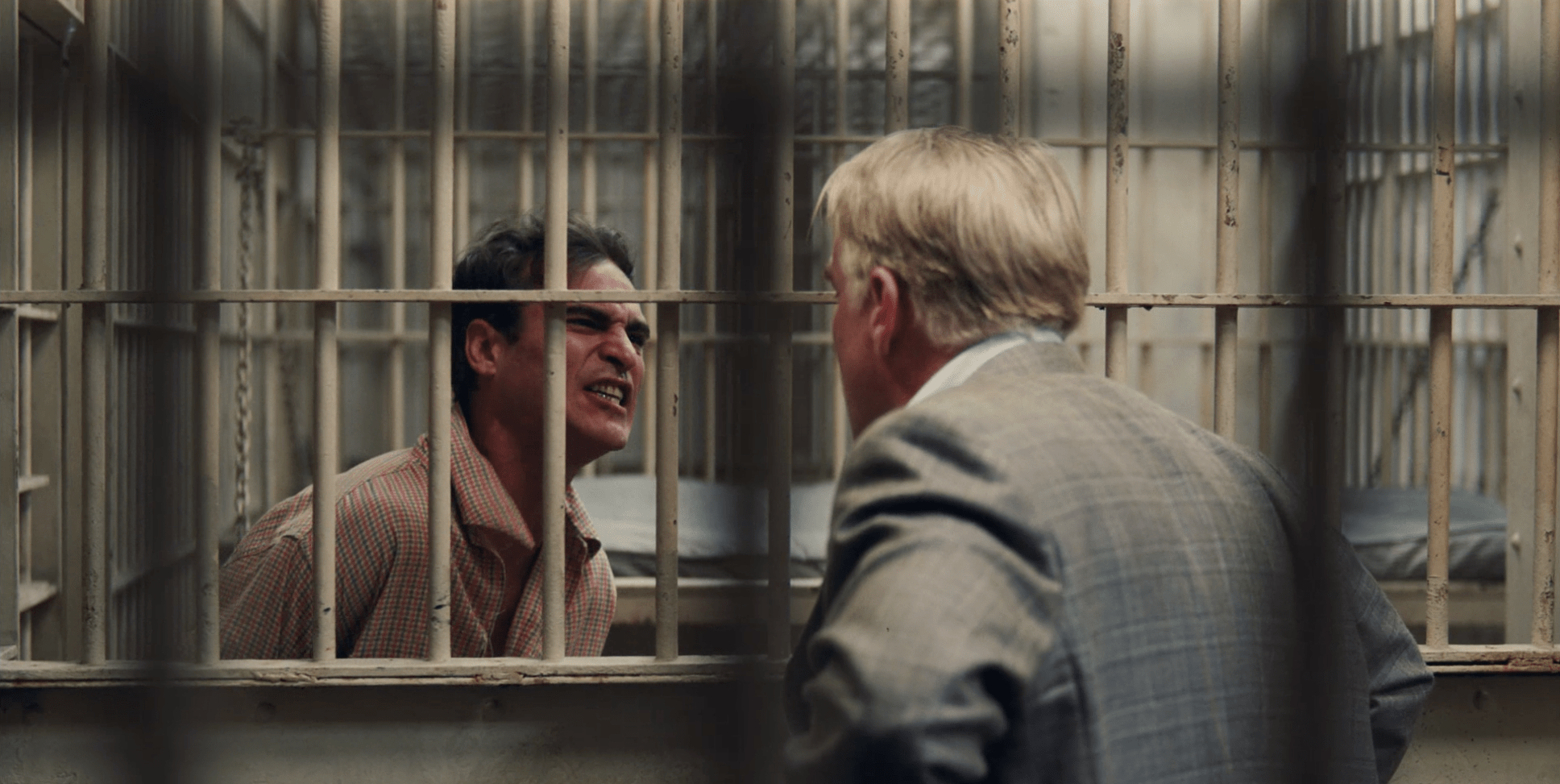
I concluded that Dodd is drawn to Quell as his own untoward half that he cannot completely sublimate through his constant intellectual labor. Despite everything, Dodd still needs a Quell to combine exotic and dangerous solutions to produce some mind-killing beverage.
A step further, I have wondered if Quell is not a sort of alter ego, if his purpose in The Master is that he is the master at one degree of separation from himself. The part of the master that he cannot completely exorcise.
Does it matter?
Do we have to know if it was real or not? What does it matter, one way or the other?
Maybe they were really naked, and this was Dodd’s doing, and the reason for his wife’s admonition. His wife admonishes him because he convinced all of the women to get undressed and this was undoubtedly a prurient pleasure.
Or this was all Quell’s imagination, for what does Quell want from anyone woman than preparation for the act that he celebrates all others. In another scene, as a group of hangers-on are listening to a lecture, he propositions one with the written note “Do you want to fuck?” She smiles and demurs.
Anderson is by no means averse to bending the rules of reality to support a narrative, perhaps most memorably in Magnolia (1999) with a rain of frogs. In The Master Peggy is undertaking a session with Freddy in which she asks him what color are her eyes, now turn them blue, now turn them black.
Deep time and The Cause
Anderson’s view of Dodd/Hubbard is as critical as it is loving. Numerous characters, including Dodd’s son (Jesse Plemens), explain that he makes it up as he goes. And in one scene Dodd is confronted by a skeptic asking how he can maintain that his method can cure leukemia (Dodd answers that it cures “certain forms” of leukeumia. High road indeed!)
And yet, the film has numerous representations of Dodd’s ideas, in the form of deep time. Deep time describes a geological time frame according to which our present moment is but a second in a much longer span. Deep time is the antithesis of any human-centric view of reality, I would contend.
Dodd’s “Cause” promotes a view of souls that have known just such spans. “Trillions” of years, he says at one point, to be gainsaid by the offered fact that the earth is only several billion years old. Oops
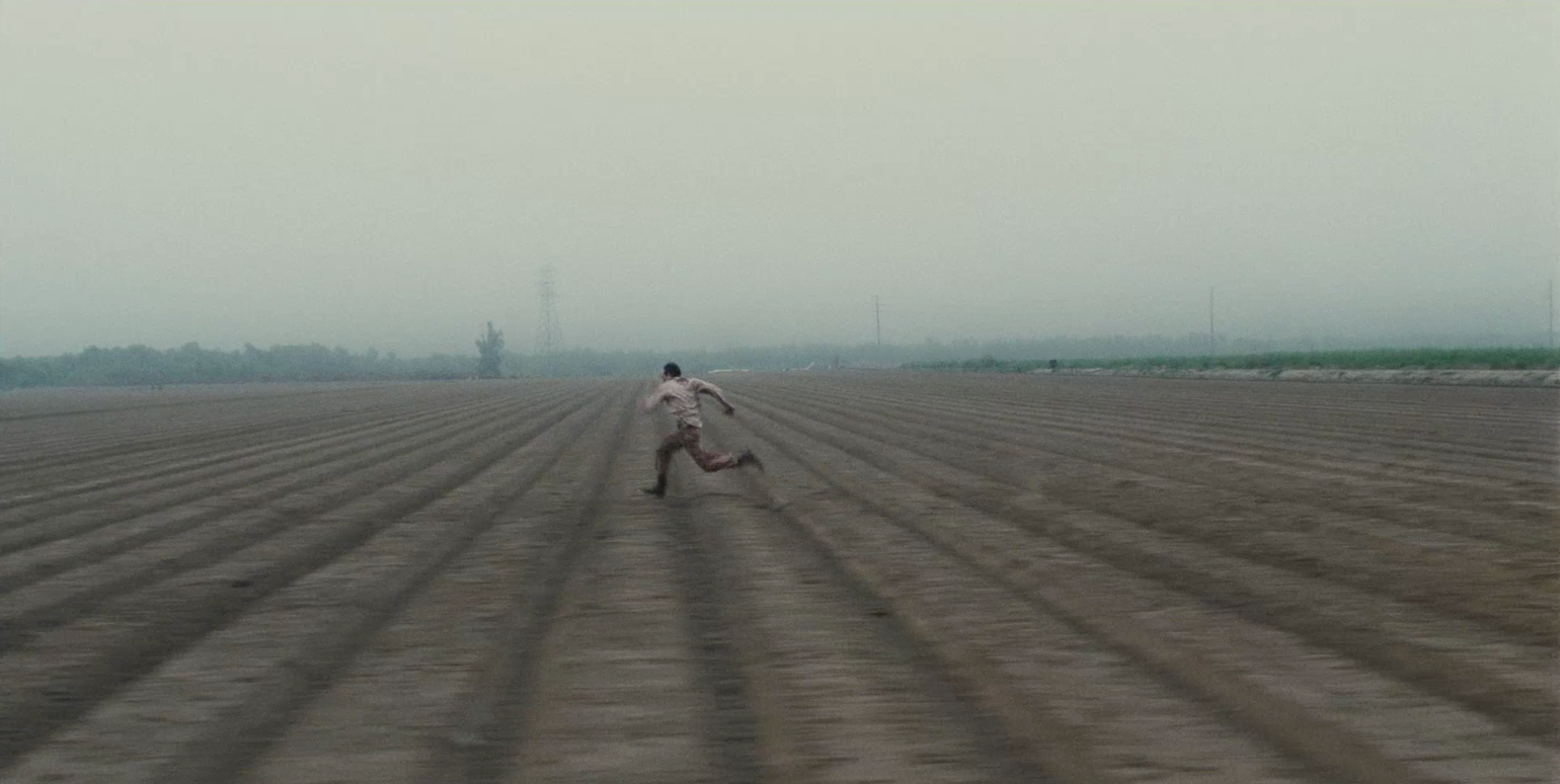
Is there anything the soul desires more than such posterity? Isn’t the experience of the sublime so powerful for precisely this reason: it is the confrontation with insuperable magnitudes?
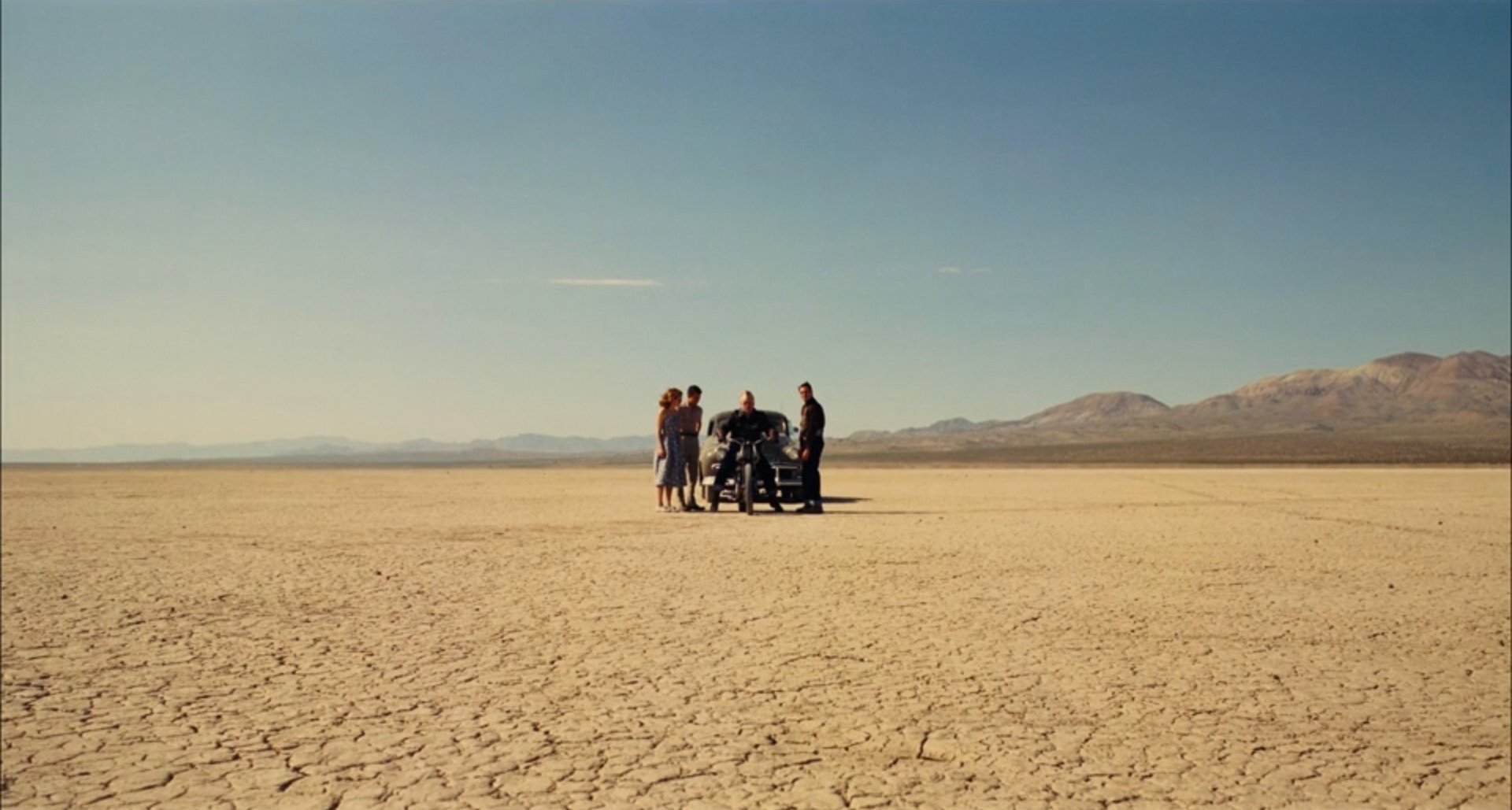
* Donald Rumsfeld Derrida, famous for saying, “Il n’y a pas de hors-texte. You must read the text as it is!” When answering questions (once upon a time, politicians acknowledged a responsibility to answer questions that were not favorable to their own perspective) about the equipment of American soldiers in Iraq, he responded that you have to fight “with the army that you have, not the one you want.”


